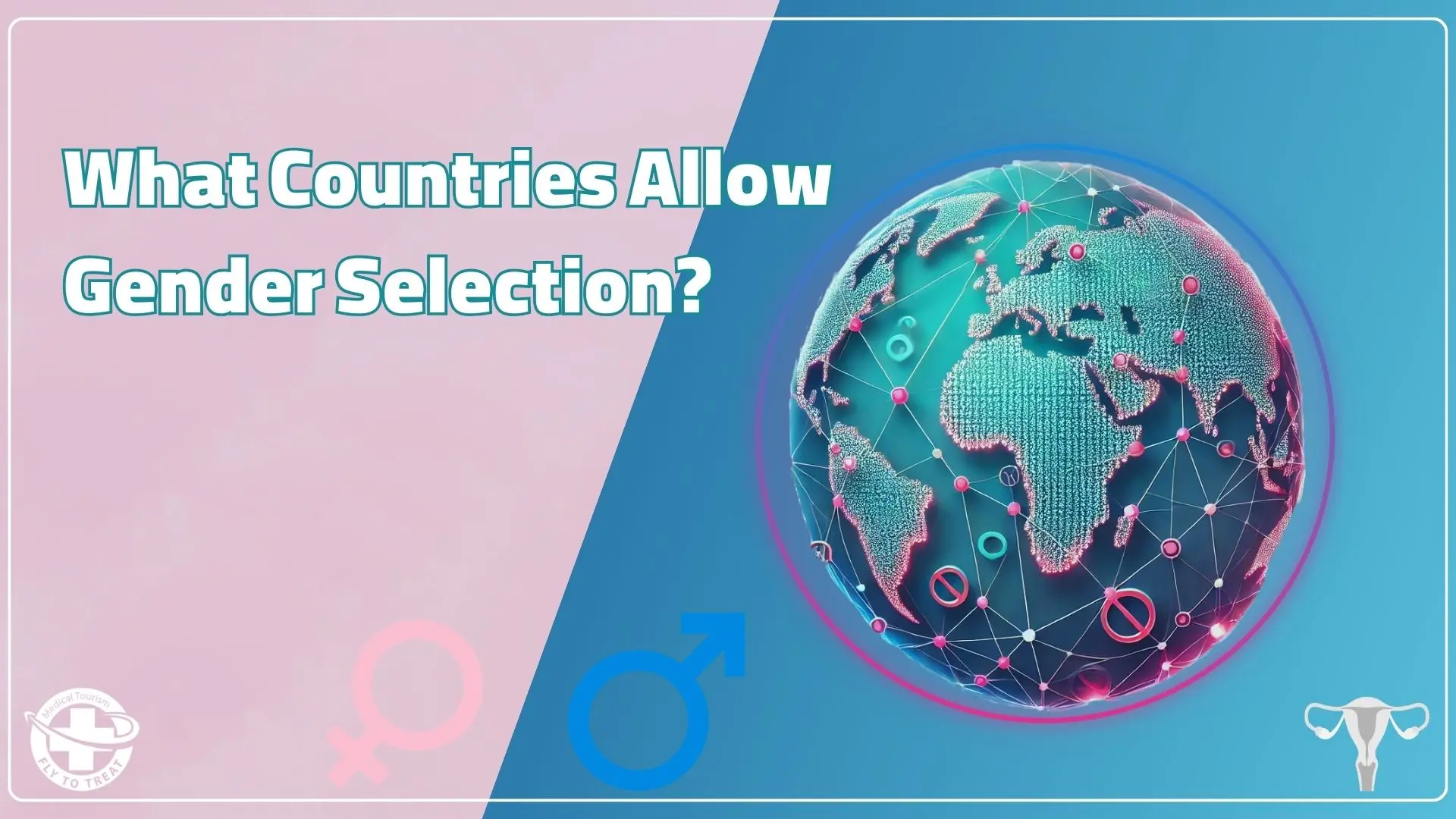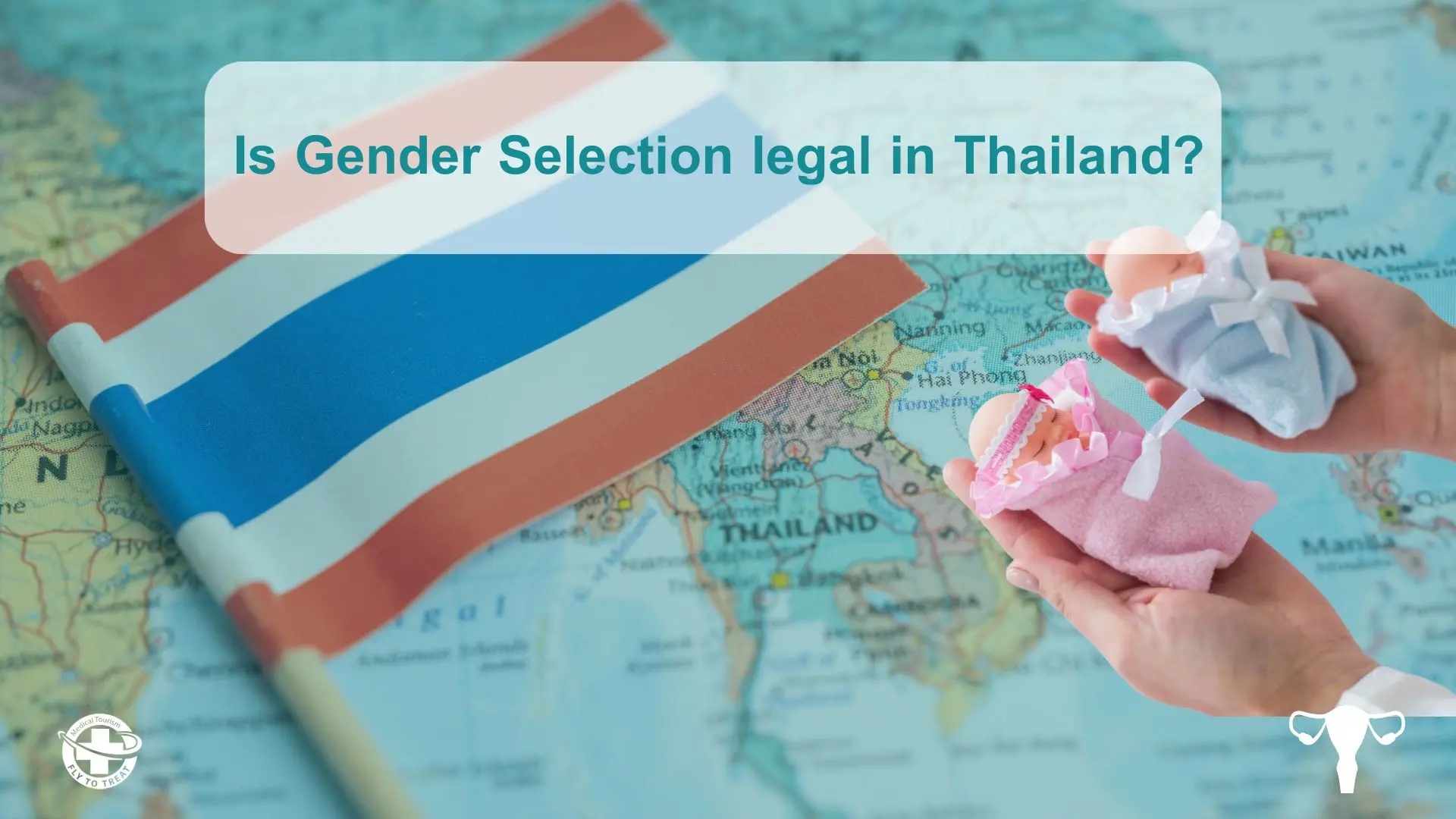
IVF Gender Selection Legal Countries
Often referred to as "Family Balancing," gender selection—which enables parents to select their children's sex before birth—has grown to be an essential component of reproductive technology. Many countries enforce strict laws or outright bans on this technology, while others welcome it and allow parents to make these choices.
Due to social conventions, ethical considerations, and health concerns, there are significant differences in the legality and acceptance of gender selection across the globe.
This article explores in which country gender reveal is legal and the countries where it is restricted, as well as the methods employed and the broader implications of this practice for society and family dynamics.
Table of Contents
What is Gender Selection?
Gender selection is a medical technique through which couples can choose the gender of their unborn child. In this method, sometimes referred to as sex selection or gender determination, only embryos of the desired gender are transferred to the uterus. Thus, the family will have a healthy baby based on the gender they decide.
Would you like to learn more about gender selection? Click here to read: “How does IVF and gender selection work?”
There are various names for gender selection, but they all indicate the same thing: gender selection for family balancing, gender preference, or sex-specific embryo selection. To understand the process, you must first grasp what an IVF cycle comprises. Through genetic testing of embryos produced during an IVF cycle, gender selection can be accomplished, enabling the parent to choose an embryo of a particular sex prior to implantation.
It is crucial to navigate the specific IVF gender selection legal countries as well as guidelines to access these services. FlyToTreat provides supportive services in countries that allow gender selection for families wishing to plan their future with greater precision.
For expert and totally free consultation, Click here.
Where is Gender Selection Legal?
There are various IVF gender selection legal countries, where couples can seek services regarding this approach. People from all over the world who are looking for affordable, excellent medical care have been drawn to the process since it is legal.
However, there are a few legal aspects to be concerned about. For instance, IVF gender selection is usually restricted to married couples in several countries and single parents—whether they are single mothers or fathers—may face legal barriers to acquiring these procedures.
Couples should stay informed about legal developments and seek advice from medical professionals to understand any applicable requirements and limitations. Gender selection rules may have evolved over time, permitting some previously prohibited features in some conditions. In the following, we'll explain Gender reveal is legal in which country or countries.
- Gender Selection in UAE: Is it legal?
Yes, in the UAE, couples can choose their children’s gender before being born as part of "Family Balancing," legally allowing for gender selection through IVF and PGD. This practice is unique to the UAE and the U.S., attracting medical tourists.
Moreover, the facility is provided to test for overall chromosomal normalcy in embryos, i.e., to determine if any genetic diseases are in the family. However, there is a lot of controversy about it.
Proponents point to the ethical benefits of choosing embryos over sex-selective abortion, as well as reproductive autonomy. Opponents counter that it goes against the notion of unconditional parental love, imposes physical responsibilities on women, and perpetuates sexism. As societal norms evolve, the importance of achieving a complete family alongside professional success is increasingly recognized.
- Is Gender Selection Legal in Iran?
Yes, gender selection is a regular technique in Iran, especially in fertility clinics, and has been made possible through sophisticated reproductive technologies. Couples might use procedures like sperm sorting and Preimplantation Genetic Diagnosis (PGD) to determine the sex of their kids.
Although the legal system allows gender selection mainly for medical cases, such as preventing sex-linked genetic problems, it is also frequently used for family harmony. Couples looking for family balancing can choose a child's gender because this availability reflects cultural preferences for baby boys.
- Is Gender Selection legal in Thailand?
Yes, IVF gender selection is legal in Thailand and strictly regulated, allowing couples to choose the sex of their unborn child using modern fertility treatments. To guarantee that only embryos of the intended gender are selected, preimplantation genetic diagnosis(PGD), examines embryos for specific chromosomes before implantation.
Thailand's legal system has made it a popular destination for couples looking to choose their gender since it offers affordable, high-quality healthcare. For many families preparing for the future, gender selection in Thailand is a feasible choice because of its legality and advanced technology.
- Gender Selection in Cyprus
Among countries that allow gender selection with IVF , Cyprus is a destination where gender selection is both possible and available through advanced assisted reproductive technologies. Couples can utilize methods such as MicroSort sperm sorting, which allows for the separation of sperm based on gender, and Preimplantation Genetic Screening (PGS) for specific medical cases.
Cyprus's legal system permits these procedures, allowing parents who want to choose their child's sex for a variety of reasons—such as family balancing or genetic health concerns—to do so.
Although gender selection for family balancing is prohibited in many countries, it might be allowed if the mother's or the fetus's health is in jeopardy. Some of the PGD gender selection legal countries where PGD is legal only for medical cases are as follows:
- Gender Selection through IVF in India (illegal PGD cases)
Gender selection through IVF has garnered attention in India due to cultural preferences for male children. PGD is primarily utilized in India to detect genetic disorders in embryos, such as cystic fibrosis, Tay-Sachs disease, and certain types of muscular dystrophy.
India has made it illegal to use techniques or technology to select gender. In India, gender choice is prohibited by the Pre-Conception and Prenatal Diagnostic Techniques Act of 1994. Given that India's sex ratio is quickly shifting and the number of female children is sharply declining, the government has taken action to stop the use of techniques to choose boy children.
Although IVF is exclusively used for medical purposes in India, it is strictly regulated because of social and ethical implications.
- Gender Selection in Malaysia
PGD is not allowed for gender selection in Malaysia; instead, it is mostly used to diagnose genetic abnormalities. Strict laws prohibiting the use of PGD for non-medical purposes, such as gender selection, highlight ethical issues in Malaysia's healthcare system. Counseling services are provided in addition to PGDT to help couples comprehend genetic testing and their reproductive options,
PGD in Malaysia enables ongoing conversations about its appropriate use as reproductive technology advances by prioritizing disease prevention while maintaining ethical standards.
This technology helps couples at risk of hereditary conditions, such as thalassemia and congenital heart defects, to select healthy embryos before implantation, ensuring healthier pregnancies and reducing the emotional and financial burdens of raising children with serious genetic disorders.
Is gender selection legal in Turkey?
No, gender selection for non-medical reasons (i.e., for family balancing or personal preference) is not legal. The Turkish government allows gender selection only for medical reasons, such as preventing sex-linked genetic disorders (e.g., hemophilia or Duchenne muscular dystrophy). Turkey's High Health Council has restricted the clinical application of sex selection methods without medical indications after six months of debate. So,
For non-medical purposes, using gender selection techniques like IVF with preimplantation genetic diagnosis (PGD) is prohibited. Turkey has strict regulations surrounding reproductive technologies to ensure they are mainly used for medical and health-related reasons.
What are IVF gender selection legal countries in Europe?
Each country has different laws regarding the legality of PGT sex selection through IVF. While some nations forbid it outright, others permit it with certain limitations.
According to a 2020 report issued by Cold Spring Harbor Perspectives in Medicine, non-medical sex selection is legally prohibited in the following countries:
- Austria
- Belgium
- France
- Germany
- Italy
- Netherlands
- Switzerland
- United Kingdom
How Much Does Gender Selection IVF Cost?
Gender selection typically involves numerous costs, which vary greatly. However, it typically costs between $4,000 to $5,000.
However, at other clinics, such as CNY, the cost can be as low as $2,000, although it fluctuates depending on the number of embryos being tested.
Typically, the basic sex/gender selection fees are divided into two categories:
The fertility clinic biopsy charges as the cost of collecting a biopsy of embryonic tissue and preparing it for analysis in a genetics lab.
Genetic lab fees involve testing the embryonic cells and ascertain each embryo's sex.
Quotes for gender selection alone often only include the costs of genetic testing and lab biopsy, but, as previously stated, sex or gender selection is impossible without IVF. The cost of IVF varies significantly and is made up of numerous components, such as the cost of gender selection.
Why Choose FlyToTreat for IVF Gender Selection?
Expertise in Multiple Countries: You can receive top-notch services by FlyToTreat that provides families with IVF gender selection facilities in reputable locations worldwide.
Affordable Packages: The cost of gender selection services is competitive, with packages available that cater to various budgets. FlytoTreat provides you with a variety of affordable options in different popular destinations based on your budget.
Comprehensive Support: FlyToTreat provides guidance throughout the entire process, from initial consultations to post-treatment follow-up, ensuring a smooth experience for patients.
If you are considering IVF gender selection, explore the affordable packages offered by FlyToTreat to help you plan your family with greater precision.
For more information on our services and to view our packages and products, please Click Here.
Conclusion
Gender selection for family balancing is a nuanced aspect of reproductive technology influenced by varying legal and ethical standards across the globe. While there are plenty of IVF gender selection legal countries allowing couples to choose their child's sex under certain conditions, many countries also impose strict regulations or outright bans, reflecting deep-rooted cultural values and health considerations.
Gender-selective couples must manage these challenges as IVF technology develops further, keeping up with regional regulations and medical standards. Finally, families need to understand the implications of gender selection so they can make informed decisions for their futures.
FlyToTreat provides full-service IVF gender selection in countries where this reproductive technology is legally allowed, such as Iran, Thailand, Cyprus and so on. These countries offer couples who wish to select the gender of their child reasonably priced packages, making it an affordable option for many families.
MEDICALLY REVIEWED BY: Dr. Ali Bazazi
AUTHOR: FlytoTreat's team of Authors
08 January 2025 - Updated At: 09 February 2025
Related Articles
Related Services
Comment









